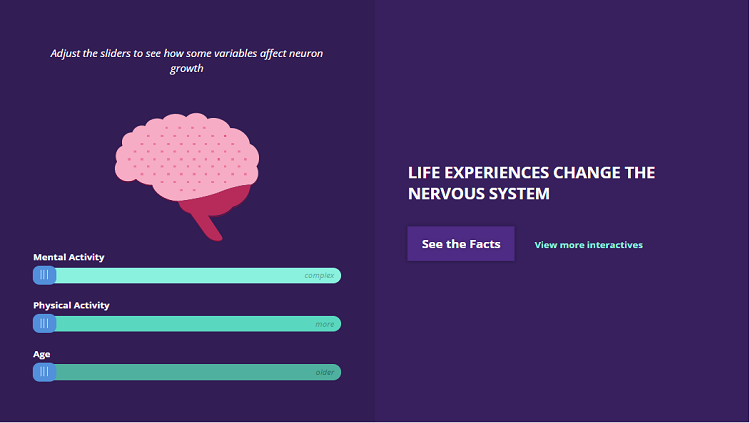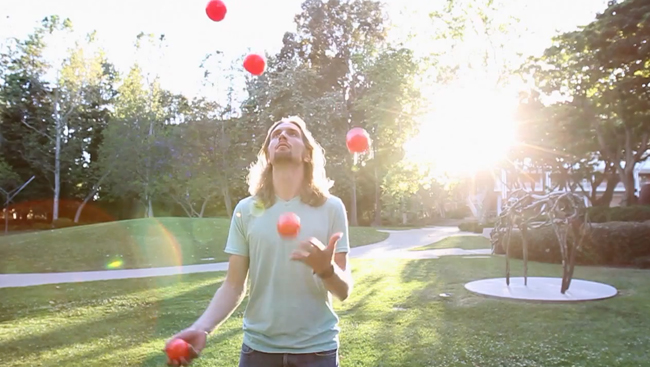How Experience Shapes Your Brain
- Life experiences change the nervous system.
- Differences in genes and environments make the brain of each animal unique.
- Most neurons are generated early in development and survive for life.
- Some injuries harm nerve cells, but the brain often recovers from stress, damage, or disease.
- Continuously challenging the brain with physical and mental activity helps maintain its structure and function - "use it or lose it."
- Peripheral neurons have greater ability to regrow after injury than neurons in the brain and spinal cord.
- Neuronal death is a natural part of development and aging.
- Some neurons continue to be generated throughout life and their production is regulated by hormones and experience.








